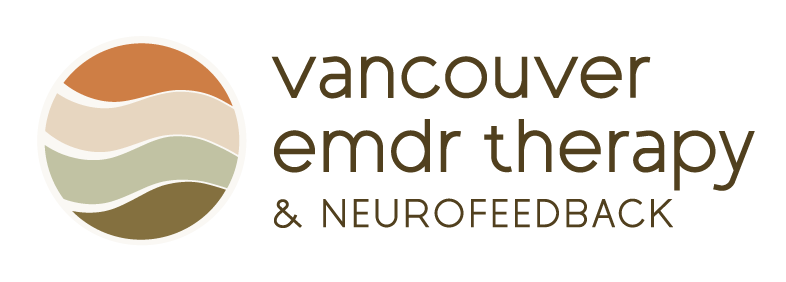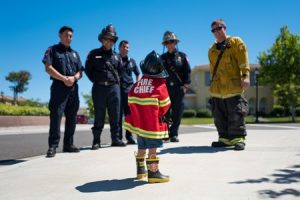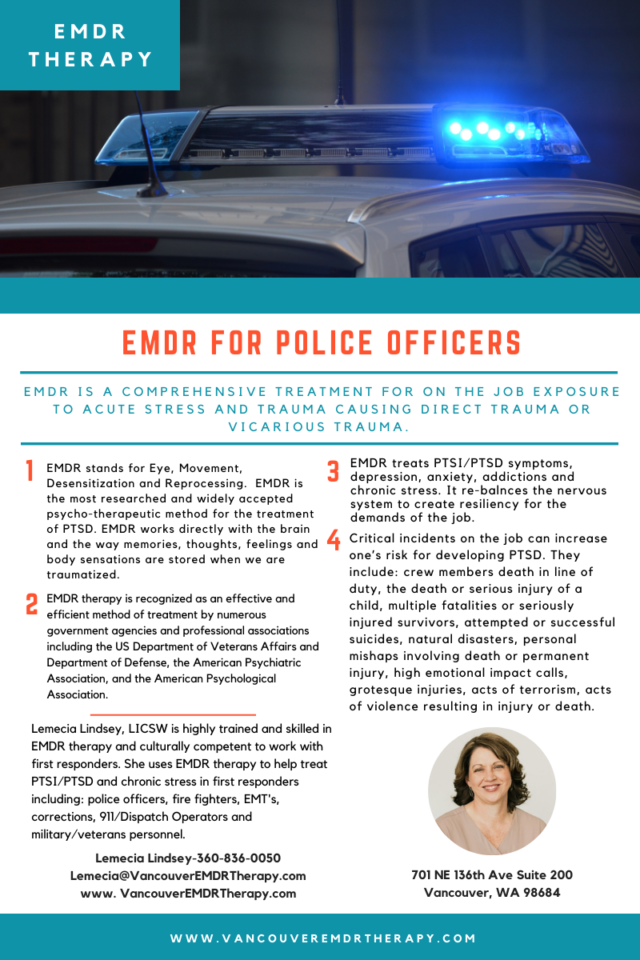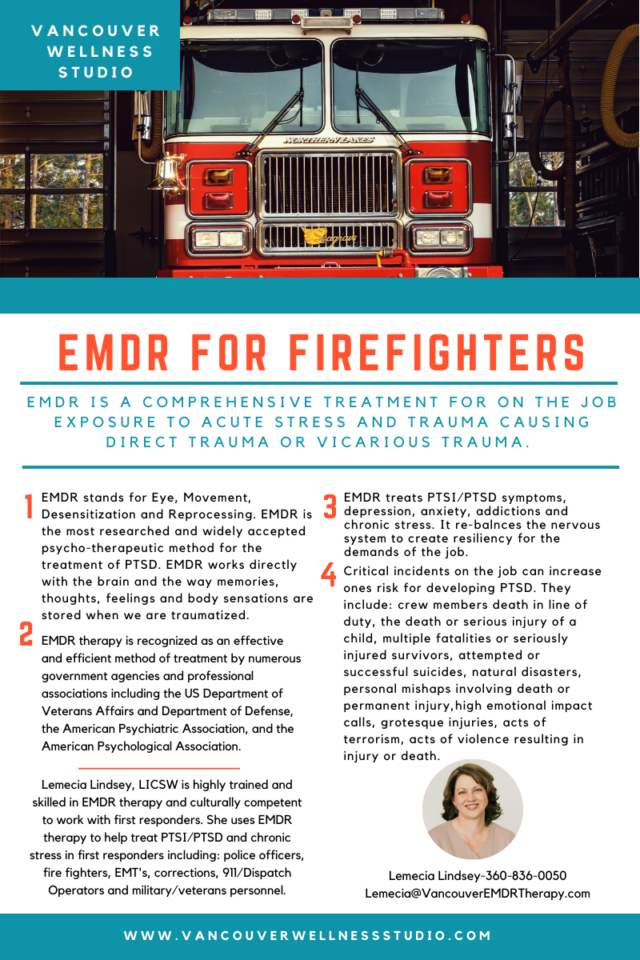First Responder Services
You Show Up for Others. We Show Up for You.
As a First Responder, you are the one people call in their most difficult moments. Whether you’re a firefighter, paramedic, law enforcement officer, or emergency dispatcher, your work is demanding, unpredictable, and often overwhelming. But seeking support isn’t just about the bad calls—it’s about the cumulative stress, the impact on your relationships, the weight of responsibility, and the need for a space where you don’t have to be the strong one.
At Vancouver EMDR Therapy and Neurofeedback, we specialize in helping First Responders navigate the unique challenges of their profession. Our trauma-responsive approach provides a safe, confidential, and effective path toward healing and resilience.
How We Can Help
- EMDR Therapy for Trauma & PTSD – Process and heal from critical incidents, ongoing stress, and traumatic experiences.
- Neurofeedback for Nervous System Regulation – Support your brain and body in achieving balance, focus, and improved emotional well-being.
- Deep Brain Reorienting (DBR) for First Responders and Shock Trauma – First Responders are often exposed to intense, unpredictable events that can overwhelm the nervous system. DBR works at the brainstem level, where the body first registers shock, allowing for deep processing and release of stored trauma.
- Stress & Burnout Management – Learn strategies to prevent burnout and manage the chronic stress that comes with the job.
- Support for Relationships & Family Life – Address the impact of your work on your personal life and relationships.
- Substance Abuse & Anger Management – Address coping mechanisms that may impact work and home life.
- Holistic Approaches – We incorporate LENS Neurofeedback and Alpha-Stim for additional healing and well-being.
- Confidential & Culturally Competent Care – Our therapists understand the First Responder culture and provide a space free from judgment.
Specialized Trauma Care for First Responders
We have over 10 years of experience using EMDR therapy to treat first responders, including firefighters, law enforcement, paramedics, military personnel, and healthcare workers. We are trained to provide Psychological First Aid to First Responders experiencing Post Traumatic Stress. We use a variety of EMDR protocols, including Recent Traumatic Events protocols and the Flash Technique, to help reduce the distress of work stress, PTSD, and other distressing life events.
Critical incidents at work can cause Acute Stress Disorder (ASD) lasting 2 to 30 days and Post-Traumatic Stress Disorder (PTSD) lasting more than 30 days. When First Responders experience, witness, or are confronted with events on the job that involve death, serious injury, or a threat to physical integrity, they may respond with intense fear, helplessness, and horror. This can lead to ASD or PTSD. First Responders may constantly re-experience traumatic memories and want to avoid situations associated with the event. They may respond to triggers with a flight, fight, or freeze response. These symptoms can make it difficult to perform their jobs effectively and impact their personal lives, relationships, and overall well-being.
Beyond treating job-related trauma, we also help First Responders address other important areas of life, such as relationships with spouses, significant others, and family members, as well as substance abuse issues, anger management, chronic pain, and stress. Due to the high correlation between unresolved trauma and PTSD, we assist First Responders in processing past traumatic memories, including childhood adversities.
Why Choose Us?
- Specialized Expertise: Over a decade of experience working with First Responders.
- Proven Therapies: EMDR and Neurofeedback are evidence-based and effective for trauma and stress recovery.
- Flexible Scheduling: We offer in-person and virtual therapy sessions to accommodate your demanding schedule.
- Community-Oriented Approach: We are deeply connected to the First Responder community and committed to your well-being.
You don’t have to carry it all alone. Healing is possible, and support is available.


 First responders are exposed to highly stressful events in the course of their routine duties. There are specific situations that increase one’s vulnerability to traumatic stress: having no control over the volume of calls; having to continue responding to calls after an especially disturbing call; the cumulative effects of being in the service for a long time; being in a helpless situation in the face of overwhelming demands, such as a prolonged, failed, rescue; having a partner or a peer killed or seriously injured in the line of duty; the suicide of a peer; being at serious risk of injury in the line of duty; witnessing horrifying things; experiencing the death of a child in the line of duty; responding to a call for a victim who is known to the responder; working without the support of administration, or having administration question one’s actions in an investigation. (
First responders are exposed to highly stressful events in the course of their routine duties. There are specific situations that increase one’s vulnerability to traumatic stress: having no control over the volume of calls; having to continue responding to calls after an especially disturbing call; the cumulative effects of being in the service for a long time; being in a helpless situation in the face of overwhelming demands, such as a prolonged, failed, rescue; having a partner or a peer killed or seriously injured in the line of duty; the suicide of a peer; being at serious risk of injury in the line of duty; witnessing horrifying things; experiencing the death of a child in the line of duty; responding to a call for a victim who is known to the responder; working without the support of administration, or having administration question one’s actions in an investigation. ( People who have experienced prior trauma are more vulnerable to PTSD than those who haven’t. This is significant for First Responders, who are constantly exposed to traumatic events. People exposed to trauma as children are at even greater risk for developing PTSD after a trauma in adulthood. There is some research indicating that females may be more vulnerable to PTSD than males. Experiencing a high level of physical and psychological hyper-arousal in the period immediately following a traumatic event may predispose a person to later PTSD. There is also evidence that experiencing dissociative symptoms and psychic numbing at the time of a traumatic event may put a person at increased risk for PTSD. Research has shown a connection between symptoms of depression in the initial weeks after the traumatic event as an indicator of increased risk for PTSD. Finally, experiencing Acute Stress Disorder predicts an increased risk for PTSD. (
People who have experienced prior trauma are more vulnerable to PTSD than those who haven’t. This is significant for First Responders, who are constantly exposed to traumatic events. People exposed to trauma as children are at even greater risk for developing PTSD after a trauma in adulthood. There is some research indicating that females may be more vulnerable to PTSD than males. Experiencing a high level of physical and psychological hyper-arousal in the period immediately following a traumatic event may predispose a person to later PTSD. There is also evidence that experiencing dissociative symptoms and psychic numbing at the time of a traumatic event may put a person at increased risk for PTSD. Research has shown a connection between symptoms of depression in the initial weeks after the traumatic event as an indicator of increased risk for PTSD. Finally, experiencing Acute Stress Disorder predicts an increased risk for PTSD. (
